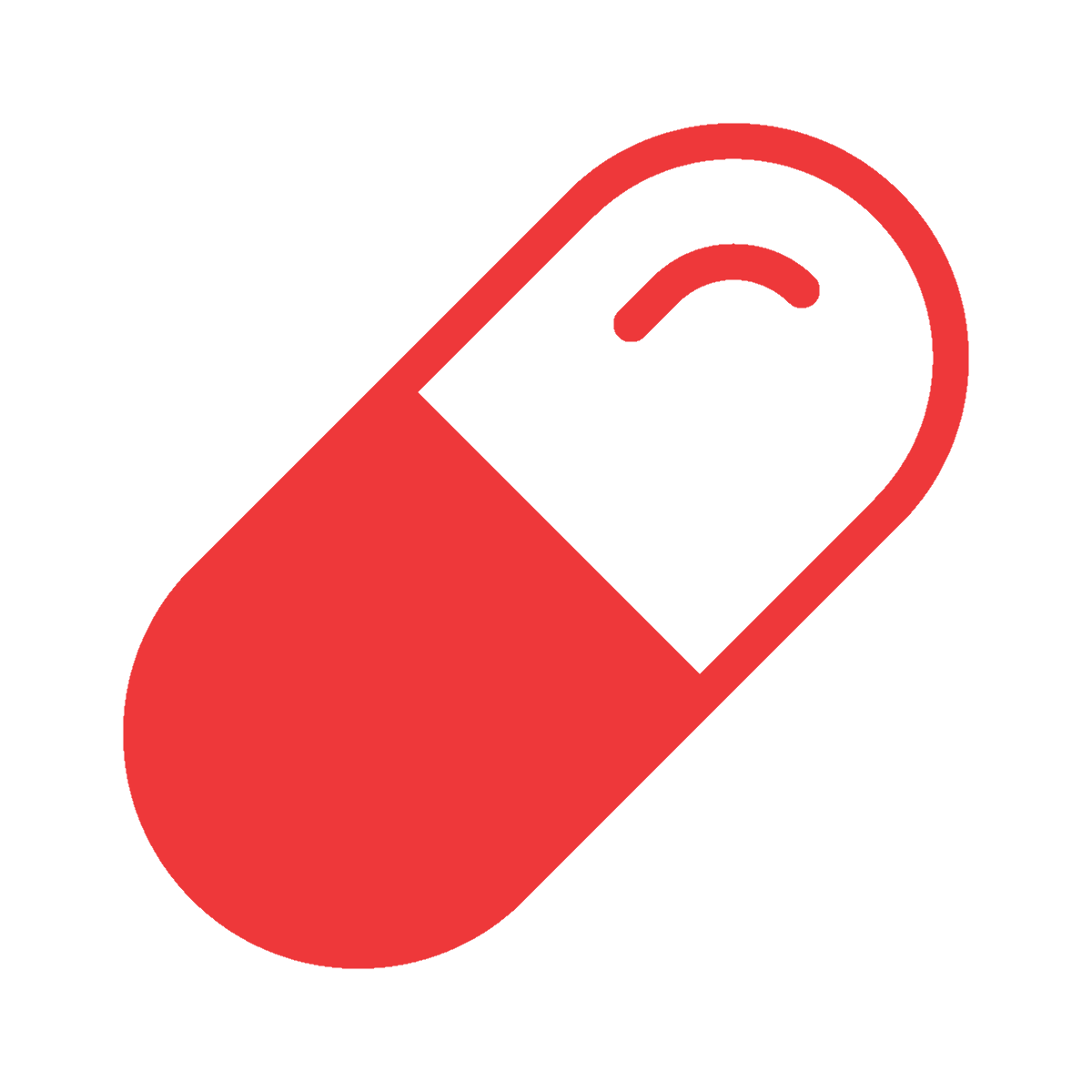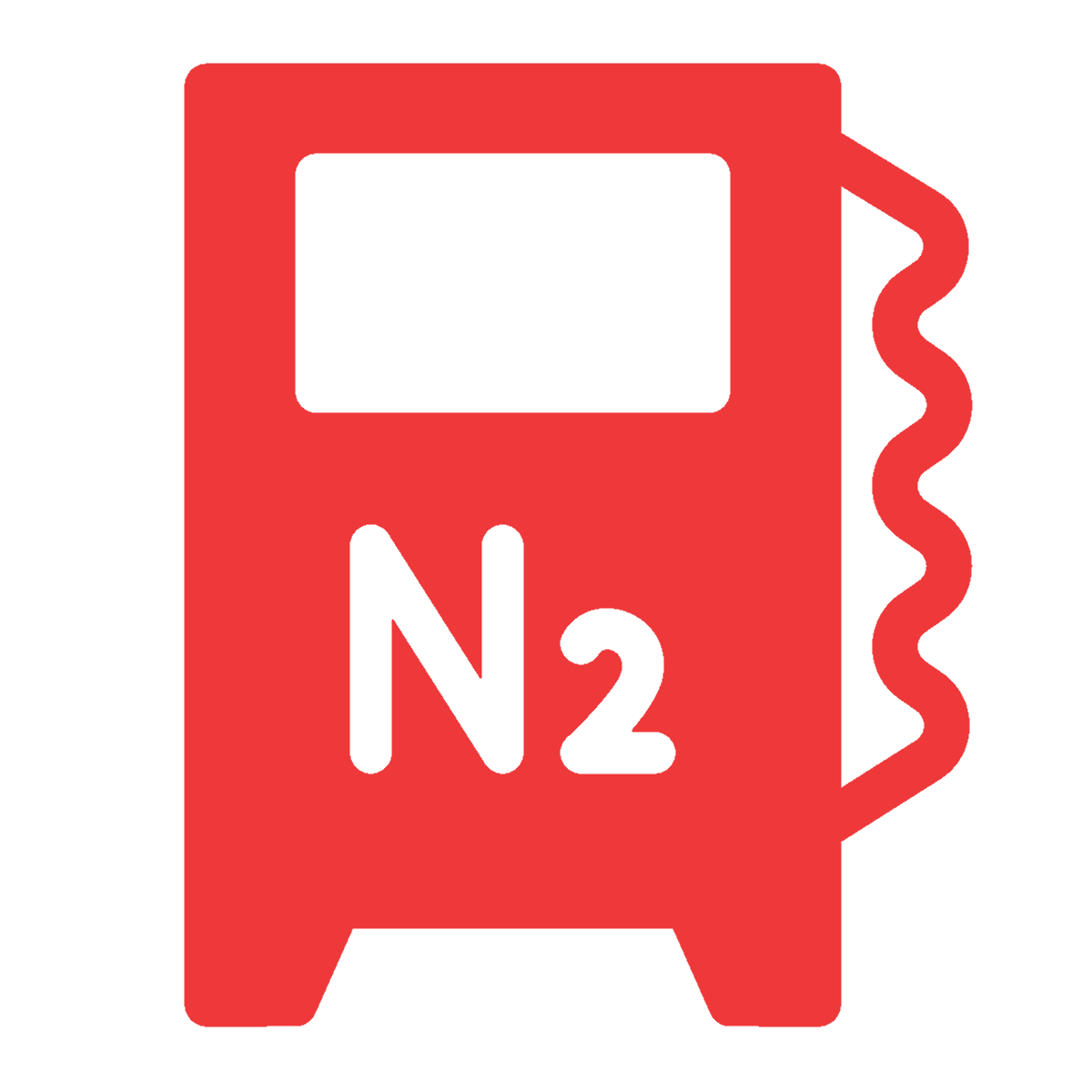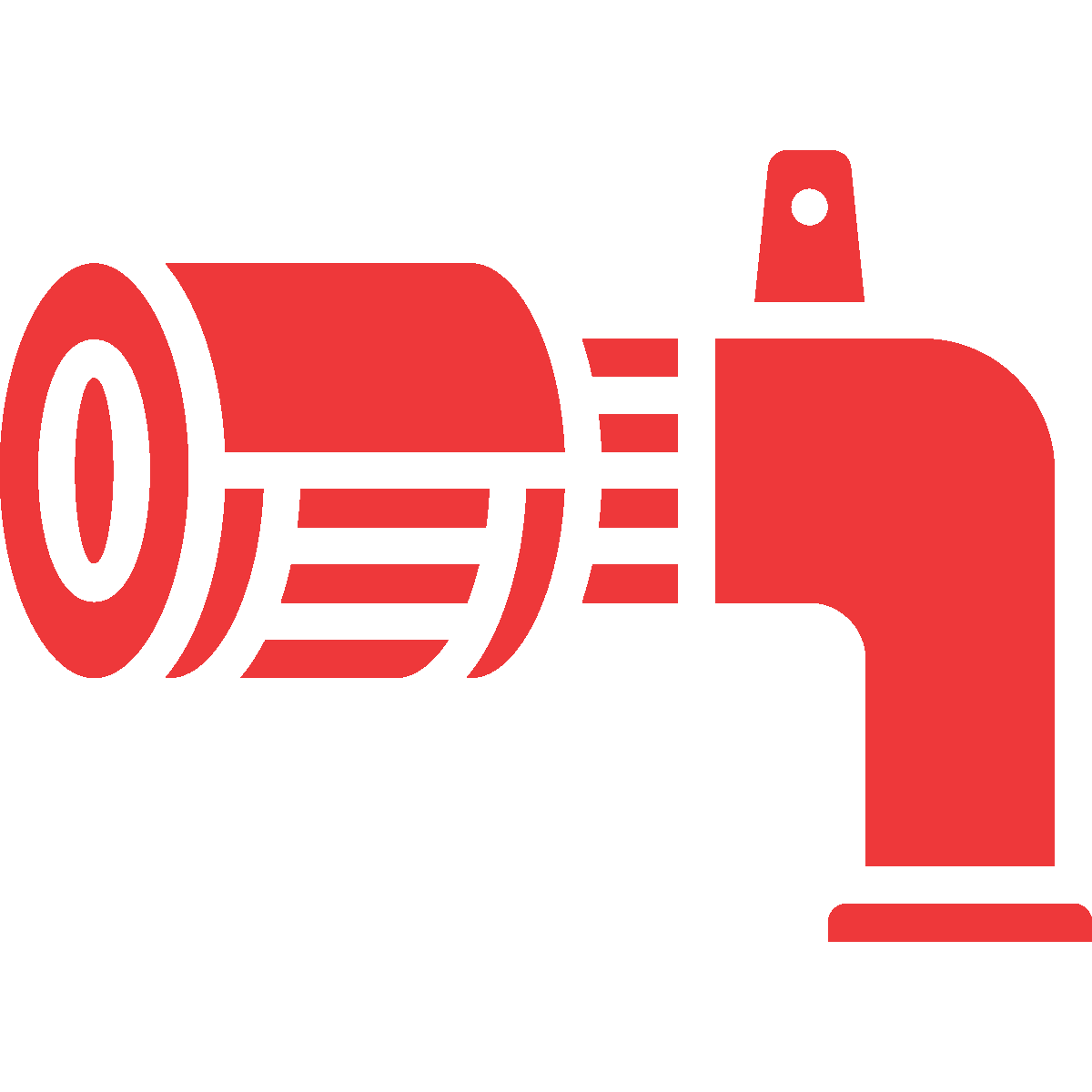
Pharmaceutical manufacturing demands absolute precision, and that includes the air you use for all of your operations from processing to cleaning to packaging. Delta Industries provides clean, dry, and oil-free compressed air systems that meet the strict requirements of modern pharmaceutical production.
Every solution we provide supports compliance with ISO 8573-1:2010, FDA, and GMP standards to protect your products, your people, and your reputation. Learn more about how air compressors from Delta Industries support the pharmaceutical industry.
How Is Compressed Air Used in Pharma Manufacturing?
Compressed air powers nearly every stage of pharmaceutical production, from formulation to packaging.

Tablet Presses
Maintains consistent compression and coating operations.

Mixing and Coating
Prevents impurities during high-precision blending processes.

Drying and Hardening
Ensures clean, moisture-free airflow for uniform results.

Blow-off and Conveyor Cleaning
Removes dust or residue safely without contamination.

Gel Cap Manufacturing
Protects the integrity of softgel shells during molding.

Nitrogen Generation
Supports inert-gas production through clean, reliable air supply.

Cleanroom Environmental Control
Sustains proper pressure and purity levels.
Regulatory Standards and Air Quality Classes
Air purity in pharmaceutical processing and manufacturing is governed by ISO 8573-1:2010, which defines acceptable limits for particles, water, and oil. Most pharmaceutical operations require Class 0–2 air quality to prevent contamination in both direct-contact and indirect-contact applications.
These standards align with FDA guidance and Good Manufacturing Practice (GMP) requirements. For aseptic and sterile environments, air must be routinely tested and documented to confirm compliance.
Typical air quality requirements include:
- Cleanroom manufacturing: Class 1 levels for all three categories (i.e., particles, water, and oil).
- Packaging and handling areas: Class 2 or better to maintain integrity during indirect exposure.
- Tablet coating and drying: Class 1–2 for particle and moisture control.
- Gel cap manufacturing: Class 1–2 for oil and humidity management.
- Equipment blow-off or cleaning: Class 2–3, where air does not directly contact the product.
ISO 8573-1:2010 Air Purity Classes and Typical Pharma Uses
| Application | ISO Class [A] – Particles |
[B] – Water | [C] – Oil |
|---|---|---|---|
| Cleanroom Manufacturing | Class 1 | Class 1 | Class 1 |
| Packaging Line (indirect air) | Class 2 | Class 2-3 | Class 2 |
| Tablet Coating & Drying | Class 1 | Class 1-2 | Class 1 |
| Gel Cap Manufacturing | Class 2 | Class 2 | Class 1 |
| Equipment Blow-Off / Cleaning | Class 2-3 | Class 3 | Class 2-3 |
Contaminants That Threaten Pharma Compliance
Even the slightest impurity can compromise an entire batch. Each type of contaminant can lead to costly recalls, regulatory violations, and damage to brand trust.
The most common threats include:
- Particles. Rust, dust, and compressor wear introduce contaminants that can foster microbial growth.
- Moisture. Excess humidity causes corrosion, packaging defects, and unstable formulations.
- Oil aerosols. Vapors from lubricated compressors or ambient air interfere with coatings and violate purity standards.
“Common Contaminants → Their Risk in Pharma Production”
| Contaminant | Where It Comes From | Pharma Risk |
|---|---|---|
| Particles | Rust, intake air, compressor wear | Product contamination, bacteria/mold growth |
| Moisture | Air compression process, poor drying | Packaging integrity, tablet defects, corrosion |
| Oil (mist/vapor) | Oil-lubricated compressors, ambient air | Coating interference, product purity violations |
Oil-Free vs. Oil-Lubricated Compressors
Choosing the right compressor design is key to maintaining compliance and controlling costs.
- Oil-free compressors. These are clean by design and capable of achieving Class 0–1 purity. They require specialized maintenance and typically have a higher upfront cost and shorter lifespan.
- Oil-lubricated compressors with filtration. These are a cost-effective alternative. When paired with high-efficiency coalescing and carbon filters, they can reliably achieve Class 1–2 purity with longer service life.
It’s important to note that oil-free doesn’t mean risk-free. Every system still requires filtration to ensure consistent purity.
Oil-Free vs. Oil-Lubricated w/ Filtration
| Feature | Oil-Free Compressor | Oil-Lubricated w/ Filtration |
|---|---|---|
| Initial Cost | $$$ (High) | $$ (Lower) |
| Maintenance Cost | $$$ (More frequent, specialized) | $$ (Less frequent, standard parts) |
| Purity (with filters) | Class 0–1 possible | Class 1–2 achievable |
| Risk of Oil Contamination | Low (but still requires intake filtering) | Low (with proper coalescing + carbon filters) |
| Lifespan | Shorter due to wear | Longer with proper service |
Achieving ISO 8573-1:2010 Air Quality Standards
Delta Industries helps pharmaceutical manufacturers reach and maintain Class 0–2 air quality with a comprehensive approach that includes:

Clean Intake Filtration
To remove dust and debris before air compression.

Refrigerated or Desiccant Dryers
Used to achieve the proper dew point and eliminate condensation.

High-efficiency Filters
These capture oil vapors, aerosols, and fine particles.

Continuous Monitoring
Combine with documentation to simplify compliance reporting.
End-to-End Support for Your Facility
Whether you operate a small cleanroom or a multi-line production facility, Delta services and systems provide complete support for every stage of your compressed air system:
- System design and sizing for your exact production needs.
- On-site installation and integration of Delta products with existing equipment.
- OEM maintenance programs to protect uptime and air quality.
- Emergency service to address unexpected repairs and downtime.
- Compliance documentation to satisfy auditors and regulators.
Start Optimizing Your System Today
Your air system is the foundation of product quality, so make sure you have an air compressor that is built for the demands of the pharmaceutical industry.
Schedule your pharmaceutical air system assessment with Delta Industries or reach out to our experts to ensure your compressed air meets every regulatory requirement.
